Story of a Man: Episode 10
by javabeans
(Love Shin’s expression in the above shot; he’s reacting to the fact that his sister-in-law seems chummier with Joong-ho than he was expecting.)
Can you believe it? Things get even darker, by a shade. Also, I enjoyed a couple symbolic beats that particularly stood out.
I’m liking how each episode makes the story change. Not that there’s a huge twist in every hour, but that the story evolves regularly. There are some dramas that are straight roads — from the starting point, you can’t quite make out the end clearly, but you can see the general path ahead, and the endpoint comes into sharper view the longer you travel toward it. Story of a Man, by this analogy, is a twisty, winding road that’s driven a little too quickly for complacency to settle in, where you can only see what’s in front of you and are left speculating whether the next twist will take you left, right, up, or down.
SONG OF THE DAY
짙은 (Zitten) – “Wonderland” [ Download ]
Audio clip: Adobe Flash Player (version 9 or above) is required to play this audio clip. Download the latest version here. You also need to have JavaScript enabled in your browser.
EPISODE 10 RECAP
After Do-woo leaves Muse Café with his (veiled) ultimatum, the next morning, Team Shin nervously watches the clock as time ticks down to the opening of the stock market. They wait to see if Do-woo makes good on his threat to dump all his stock and therefore render Team Shin’s stock worthless.
Do-woo gives his father the (illusion of) choice about the matter, asking him to hand over his stocks — the (ex-)chairman may as well, since Do-woo’s the acting head of the company anyway. His father balks, to which Do-woo says, “Then I have no choice. If you keep those stocks, you can join up with those con artists again and backstab me.”
If his father won’t hand them over, he’d better throw away his own shares. This alarms his father, but Do-woo doesn’t make empty threats. He calls his man and orders him to get rid of all their stocks, with absolute calm: “Dump them all so nobody will accept them, till they hit the absolute bottom.”
Do-woo hints that he has a plan to “save Chae Dong later,” which explains why he is so blasé about trashing his stocks now — he’ll recover them once he’s gotten rid of Team Shin. But even if he can’t do that, he’s not worried: “If not, we’ll dump Chae Dong and move on to our next target.”
Having proven his point, Do-woo tells his father again to sign over his shares. With no other choice, ex-Chairman Chae signs.
Back at headquarters, the team sees the stocks plunge. Jae-myung calls it: “Game out.” Kyung-tae has to concede defeat: “There’s nothing we can do.” He explains that the stocks they bought — an investment of 9 billion won ($7.3 million) — will drop to 3.1 billion won ($2.5 million). Because the value has fallen so precipitously, that turns their secured loan (1.9 billion won, or $1.5 million) into a debt. How do they repay that?
That is the big question, and one with no viable answer at the moment. Feeling the burden of this defeat, Shin heads out for an aimless walk, thinking back to moments in the past: of his brother, mired in debt; of Mun-ho telling him that what makes money frightening is its ability to steal everything from you; of Do-woo telling him he wasn’t up to this revenge.
Almost immediately, calls pour in demanding repayment. Mun-ho is stressed out and yells at the callers, while Jae-myung is laid-back as usual. He sees a simple solution: They can buy plane tickets and head to L.A.
After deliberating his options, Shin comes back and faces his teammates solemnly:
Shin: “I know about debts better than anyone, but I still fell into debt and brought you into it. I guess I didn’t understand them fully. I made this happen, so I’ll take responsibility for it.”
Jae-myung seems a little disapproving as he asks, “Then is your revenge over? You’re heading over to surrender now.” Mun-ho eagerly suggests pulling off another scam. But Shin has made his decision, and says that he’s not really suited for scams. He heads off to make the surrender official.
Do-woo relishes seeing Shin enter his office. Shin’s attitude isn’t overly proud or overly humble — he’s matter-of-fact as he explains one lesson he learned in prison: “When you’ve lost, admit you’ve lost quickly. That’s so you can start the next fight.”
Amused, Do-woo asks, “Did you just say ‘the next fight’?” Shin answers stoically, “Yeah. This time, I lost. You said you’d buy our stocks. Buy them.” He has prepared the documents for the stock transfer, and valued them at 4 billion.
I like how Shin speaks to Do-woo in banmal, or familiar speech; he doesn’t use it to sound rude, but it keeps his words free of any veneer of false respect. It’s stripped-down, basic language. It’s also at this point that Do-woo’s smugness fades a little as he regards Shin, who isn’t broken down, as Do-woo perhaps wanted to see him. In fact, it feels like Do-woo tries to assert his position of power by reminding Shin he was supposed to kneel and beg. But instead — and this is just my interpretation, so you may disagree — it actually seems that Do-woo looks weaker by issuing the demand, as though he’s not in control and therefore has to force it.
That feeling is reinforced by the fact that Do-woo tosses out Kyung-ah’s name, as though wanting to hurt Shin further, which again seems like a weak thing to do, especially since Shin keeps his cool. It’s not that he’s unfeeling, but that he has come to terms with his defeat and is prepared to man up and take responsibility, so all this extra stuff isn’t going to humiliate him further. He tells Do-woo, “I won’t tell you to treat her well. She can take care of herself, regardless of how well a man treats her.”
Do-woo: “Don’t you have pride?”
Shin: “I do. I came because I do have pride. Keeping my people from being hurt because of me — that’s my pride.”
Shin kneels and says, “I’m asking you for a favor. Buy those stocks. Let me pay back my debt.”
Do-woo tells Kyung-ah that he bought Shin’s stocks, and comments that from her point of view, it must be foolish to take these stocks at this price.
I know she has no reason to distrust him, but I’m sure I’m not the only person to be annoyed when Kyung-ah tells him, “I trust you.” She has complete faith that he will do a good job with the stocks she bought in her name.
Shin informs his team that he’s paid back the debt, trying to keep his voice level even as he holds back tears. Mun-ho picks up on the goodbye-like feeling to this conversation and insists that Shin return to the café. Jae-myung and Kyung-tae also listen intently to Mun-ho’s end of the conversation.
Shin’s not totally successful at holding back his choked voice as he assures Mun-ho he’ll drop by soon, and to look after the others. He explains, “I want to be alone now.” Clearly the burden of being team leader, of being responsible for people other than himself, is wearing on him.
Joong-ho calls him in a panic, and Shin rushes to Myung-sun’s Myungdoshi neighborhood, where a demolition crew is marking the homes to be evicted and torn down. Joong-ho is angrily defending Myung-sun’s home against the invading crew, who force residents out of their homes roughly and rudely.
Joong-ho’s fighting mad, ready to charge them all single-handedly. The more Shin hears, the more angered he becomes, and a fight breaks out. Shin and Joong-ho defend Myung-sun’s home from the crew, who are armed with metal poles/pipes.
After the fight is broken up, Shin and Joong-ho are treated for their injuries at a hospital room, where Shin questions the leadership abilities of the elderly mayor, who had arrived on the scene and done nothing but talk. Isn’t it his job to take care of his people, and to prevent crews like that from storming homes?
However, the mayor sighs that even as mayor, there’s little he can do; he doesn’t have jurisdiction within the residential properties. The demolition crew is scheduled to return in the morning and begin the process again. While he can’t stop them, he suggests to Shin and Joong-ho that they might be interested in joining the residents who are planning to stay up all night guarding their homes in a “demo” (demonstration).
Do-woo is apprised of the matter, then looks up, pleased, when Eun-soo enters his room. She asks whether he really intends to hospitalize their father, and while his excuse is that it’s for his health, they both know that it’s a control tactic to get him out of the way. Eun-soo says tearfully that Do-woo’s already taken everything away from their father — “Can’t you leave him alone now?”
Speaking in a reasonable tone, almost like a parent humoring a child, Do-woo asks why she’s like this with him — he twists this around to make it seem like she’s the one acting weird, not him. He says sadly, “I don’t know what to do every time you act like this.”
Since this is timid Eun-soo, it’s noteworthy that asserts her opinion firmly, saying in the declarative: “Father is going to stay home. Let him do that.” She’s not defiant about it, but he’s not used to Eun-soo being assertive; Do-woo tells her, “I miss you. The old you.” Eun-soo pleads, “Just leave us be. Please.”
The next day, Shin watches a young boy spraying graffiti on the walls declaring, “We will fight.” Myung-sun explains that there aren’t many people in the neighborhood available to fight — it’s mostly elderly people and single women. The residents moved here after being cast out of other neighborhoods facing redevelopment, and even though they were aware that Myungdoshi was going to be redeveloped too, they were told they had a year. To suddenly be kicked out today leaves them suddenly homeless.
Shin wonders why they aren’t being offered relocation compensation, but that’s only for homeowners — everyone here rents. The land had all been bought out by a company (Chae Dong), and therefore this is private property.
Myung-sun takes a philosophical perspective, saying that she has it pretty easy compared to some of the other residents. It is SO CUTE when she mentions that Joong-ho has been helping her, and Shin looks incredulous to hear her calling him “Joong-ho-sshi.”
When the crew returns, the residents stand to face them, carrying signs. The leader pleads with them, because this treatment is unfair and borderline cruel, to kick them out without warning.
Shin and Joong-ho observe, speculating that it probably won’t get out of hand — surely the men wouldn’t attack old, defenseless people, right?
Unfortunately, they’re wrong. The hired crew shove past the residents, break windows, and drive out the people who are shut inside their homes. Those who resist are beat down and pushed aside. It’s pretty awful.
Worse yet, the police aren’t cooperative — they are at the base of the neighborhood, but do nothing to intervene. The policeman in charge takes the stance of “I have no authorization to charge onto private property,” but we can sense that they’ve also been “persuaded” to stay out of it (a bit later, we see how the chief sucks up to Do-woo, indicating that he’s firmly in Chae Dong’s pocket).
Shin and Joong-ho leap into the fray and do their best to fight off the men, although they are overpowered and outnumbered. In desperation, Shin seizes a container of gasoline that has dropped to the ground, and signals for attention as he dumps the contents all over himself — and pulls out a lighter. He threatens to set himself on fire — and take them down with him. He won’t go alone.
The mayor proves that he’s not just a senile old man — he’s actually rather wily — by calling in reporters. They arrive on the scene and start taking photos, catching shots of the demolition crew beating the helpless residents.
Shin, lighter in hand, takes advantage of the media attention and lets them get their photos.
Do-woo receives updates on the conflict, unhappy at the complications. He orders Director Oh to block the damning photographs from being released. Dir. Oh assures him that this is easy to do, having been done many times in the past.
It’s too bad that this is true, as a reporter is called into his boss’s office later and the story killed. Clearly, Chae Dong’s name is a strong enough influence in forcing the newspapers to obey their dictates.
Jae-myung, meanwhile, prepares his own revenge mission, loading his gun and heading out. When Mun-ho asks where Jae-myung went, Kyung-tae says that he went to rent a car.
Mun-ho’s reaction is adorable, because this news sends him fumbling for his phone to alert Shin — and then he pauses, insecure, asking whether this will come off like he’s using an excuse to call Shin. Mun-ho: “Men don’t just call other men for no reason!”
With the addition of the press, the skirmish comes to an end, and we learn that Shin actually dumped water over himself. Joong-ho marvels at his guts in faking it so well, and Shin reminds him that he’s gotten pretty good at pulling off a con.
Mun-ho’s phone call warns him of Jae-myung’s actions. Sensing what Jae-myung’s about to do, Shin calls him.
Shin: “I’m not going to stop you. I lost the first round, and I told you to do whatever you wanted after that, so I can’t stop you. But take me with you, don’t go alone. You helped me, so this time take me and let me help.”
This does not move Jae-myung, who hangs up on Shin to eye his target: K has picked up Do-woo and driven off.
The only way to figure out where Jae-myung is headed is to find out where his target is headed, so Shin calls Mun-ho and tells him to get Do-woo’s schedule.
What follows is pretty clever on Mun-ho’s part, who calls Director Oh pretending to be a reporter wanting to write a special report about the new head of Chae Dong Construction. As a result of his flattery, Director Oh’s guard is down and he mentions that Do-woo’s currently in Myungdoshi.
Mun-ho starts to head out to Myungdoshi too, only to have Kyung-tae offer — no, declare — that he’s going along, too.
Arriving in Myungdoshi, Do-woo meets with city officials. IThey’re dazzled with Do-woo’s promise of future glory for their city, won over by his professional, confident demeanor. Do-woo acts like he has a benevolent purpose as well — he’s not just going to build apartments to get rich, he wants to build an international boarding school, and has already made arrangements with a top private school from England. This school is a vital part of his Myungdoshi project.
The mayor compliments Do-woo for his impressive plan, which makes Do-woo ask why he interfered, then, by calling in reporters. The mayor answers that he wasn’t doing it to interfere, but “people keep getting hurt.”
Thinking he can bribe the mayor to his side, Do-woo tells the older man to state whatever he wants. The mayor replies, congenially, “It seems you are planning to make our city into an outstanding city. Can’t you set aside one part to make apartments to lease out, so those who are displaced can live there?”
Do-woo’s satisfied smile disappears, and he asks, “What if I can’t?”
This is the scene in which the mayor proves his mettle, because he answers that if Do-woo is going to construct his buildings, he’ll need city hall approval. His pleasant words belie the challenge underneath: that he is not afraid to resist Do-woo if necessary.
On the exterior, he seems like a possibly daffy old man, and Shin certainly felt exasperation with the mayor’s maddening calmness. Now, Do-woo gets a taste of it, and laughs in disbelief.
While Do-woo is in his meeting, K waits outside in his car. Jae-myung moves into position to get a good shot at his prey, staking out a spot on the roof with his gun.
Shin searches all over to stop Jae-myung from his murder mission, unable to find him but knowing he’s around somewhere, so he does the next best thing — he beelines for K. He approaches K’s car with a wide smile (confusing the latter with his friendliness), offers him some gum, and stretches. K doesn’t get it, but Jae-myung does — now he can’t get a clear shot.
Chairman Chae is perturbed over Do-woo’s newest obsession to create his dream city, although it’s not really a new goal, just one that’s finally being executed after years of planning. Eun-soo has heard him speak of it before: “His dream is to make a Neo-Monaco.”
Chairman scoffs, “It’s not a dream, it’s a toy.” After he’s done with that, what will be his next toy? Eun-soo wonders hesitantly whether it would be okay to support Do-woo a little, obviously feeling guilty over the estrangement.
The Chairman also wonders in irritation why Shin and Jae-myung haven’t been by to ask him for money. He knows they must have lost a lot and expected them to come to him.
After exiting his meeting, the mayor hands Shin his card and tells him to drop by whenever he needs, oblivious to (or ignoring) the fact that Shin is impatient and distracted — he’s got one eye on K’s car, which is readying to leave.
Shin instructs Joong-ho to follow Do-woo’s car, keeping another eye out for Jae-myung, who’s bound to be following, too. However, Shin’s expression turns grim when he sees Do-woo pull over and meet someone by the road — it’s Kyung-ah, who picks him up in her car. Do-woo gets into Kyung-ah’s car and they drive off — followed by K, followed by Shin.
Jae-myung is indeed pursuing K (who has picked up on the fact that he’s being stalked), and catches up to the car as it’s stopped in a small side street. Cautiously, Jae-myung gets out of the car, gun ready, and approaches the driver’s side door.
K has exited on the other side and creeps around the car to catch Jae-myung off-guard from behind — but doesn’t find him. He turns. A gun is pointed straight at his head. Jae-myung smiles and prepares to shoot…
…but K grabs an unsuspecting woman who’s walking down the street, and holds up a knife to her neck, forcing Jae-myung to lower the gun.
A short time later, Shin pulls up and races to Jae-myung, whom he finds slumped on the ground, stabbed in the gut.
Do-woo has called Kyung-ah because he wants to share his new project with her, first pointing out the land as they drive by it, then showing her photos in a boardroom. He explains that his dream of a Neo-Monaco is to create a hotel, casino, and theme park to make it like a mini Las Vegas — a self-sufficient city without need of help from the outside.
What’s interesting about this conversation is that the more Do-woo talks of his plans, the more excited he gets — and we know that he never gets excited. He’s almost boyish in his eagerness, dreamily telling her how there won’t be an income tax or inheritance tax in his city:
Do-woo: “I told you I would make Monaco. All the rich people from all over the world will gather there. Lots of people will transfer their main offices here to evade taxes. Like Monaco. I told you this before, Eun-soo.”
Whoops. The instant he says “Eun-soo,” Do-woo comes back to himself, realizing his slip, looking almost disappointed in himself. Kyung-ah reacts with growing concern, shooting him a quizzical look.
Shin takes an injured Jae-myung to the mayor’s apartment, where he’s attended to by a doctor at the mayor’s request. While Jae-myung sleeps, he steps outside onto the rooftop, where the mayor joins him. Shin knows he’s imposed on the mayor, and both apologizes and thanks him for his help.
The mayor wisely notes, “Seeing as how you came to me, you must not have anyone else to lean on.” Smiling ruefully, Shin answers: “I don’t.”
The following conversation is both meaningful and lovely in its simple insight. It starts as the mayor asks what Shin and his friend do for a living:
Shin: “We do different things. That guy at least knows what it is he’s doing, but I don’t know, what am I doing? It’s like hitting a boulder with an egg.”
Mayor: “Are you angry that it’s an egg rather than a boulder?”
Shin: “That friend downstairs calls me a nice guy. But being nice makes me weak, so I can only lose. So I’m nice, weak, egg who can only lose.”
Mayor: “Your friend was mistaken. Being nice doesn’t make you weak. Being alone makes you weak. Because you keep trying to go alone, because you enter the fight alone, you lose alone. You call it an egg beating on a boulder? Throwing one egg doesn’t make a difference. Throw it a hundred thousand times. The boulder can crack too.”
As the mayor speaks, Shin is moved to tears, because it hits his dilemma right on the head. He tries not to let them fall as the mayor surmises, “You’re alone in spirit, aren’t you?”
COMMENTS
There’s an interesting detail when Do-woo meets with the main players in Myungdoshi, which he does with his customary false sincerity and charm. He’s cool, in control, and knows he’s got a really good shot at getting exactly what he wants out of these men. And he also, oddly, wipes his sweaty palms under the table on a handkerchief. Out of character? It sure seems so, but I’ve got such confidence that this drama’s characters always have a reason behind the things they do, so my theory is that the mere prospect of gaining his Neo-Monaco is so thrilling that Do-woo practically starts to salivate, knowing it’s almost within his grasp.
This excitement spills over into his conversation with Kyung-ah, and again, it seems out of character for Do-woo to forget himself and let himself slip, calling Kyung-ah “Eun-soo” by accident. And again, I’m going to have to attribute this to an unprecedented level of eagerness at having his dream so close to being realized that he starts to lose his head a bit.
I have to give Kyung-ah some credit for sensing the eerie shift in Do-woo’s attitude even before his misstep. His attitude is not overtly bizarre, but she senses a change in his tone, and starts to furrow her brow, like she’s seeing something she hadn’t expected. If Do-woo is creepy when he’s being chilling and restrained, it’s even more unnerving to see this hidden wild streak in him.
Isn’t it funny, though, that the minute he exhibits some actual human emotion is when he seems even more unhinged and, dare I say, diabolical? (And then he goes and accidentally substitutes his sister’s name instead of his girlfriend’s, and adds a whole new layer of creepiness to the encounter.)
On the lighter side of things, Kyung-tae has a couple funny moments in the episode, and while my first impression was that these were throwaway funny lines, they also speak to the theme of isolation and friendship. Notice how Kyung-tae reacts when he says Jae-myung rented a car, and Mun-ho asks in exasperation, “Why are you telling me this now?” Kyung-tae responds, all innocence, “You asked now.” It’s a cute moment.
Later, when Mun-ho starts to rush out to help Shin, Kyung-tae volunteers to go along. There’s another cute beat when Mun-ho wonders why he wants to join him, and Kyung-tae responds, “The reason I’m going is…” Since he can’t think of a reason, he trails off and leaves without answering.
In the first instance, Kyung-tae waits to be addressed — this is his tendency, hovering and listening but remaining at a distance. However, in the second, Kyung-tae takes initiative. It’s a small thing, but kind of significant to see him engaging more with others, being brought out of his shell. I love seeing the Dream Team bonding, and everything in this episode speaks to the group growing more solid, rather than breaking up.
And now, more about the directing: This episode is all about Shin cutting off his crew (to save them from being hurt further because of him), and that isolation is a key theme. To emphasize that point — if only on an unspoken, subconscious level — we have lots of shots of Shin being caged in, cut off from his surroundings, alone and stifled. It’s an isolation of his own making, and these images (both above and below) add a feeling of claustrophobia that works on a metaphorical level to correspond to his emotions. Even when he’s out in the open (like the shot at above right) he’s visually trapped by the concrete walls around him.
If this was something that we saw once, I’d probably dismiss the detail as unintentional — maybe the director just wanted a cool angle. But as it is a repeating motif, I’m sure this is intentional; it’s a rather nifty detail. I appreciate the subtlety in that the director doesn’t hammer in the message and trusts the imagery to convey that feeling. Even if you don’t register the symbolism outright, I think the visual framing seeps into the scenes anyway to underscore how Shin is alone.
Shin’s reaction of retreating from the group is consistent with his character, in that he did a similar thing to Kyung-ah and his sister-in-law when he was first sent to prison. I see this as overcompensation for his brother’s behavior — he saw how his brother unintentionally hurt the ones he loved, and thus goes to extremes in the opposite direction.
His impulse to go solo is partly noble, but I suspect it may partly be fear (cowardice?), because he doesn’t feel he can handle the responsibility of letting them down. When his revenge plan failed, naturally the whole team was upset, but you never got the sense that they were going to blame Shin for it — at least, not wholly — and their suggestions (as half-baked as they were) included all four team members. Jae-myung could have fled alone to America, but the plan he suggests involves all of them relocating to L.A. together. He may feign indifference, but inside, Jae-myung is a big ol’ softie, and he’s definitely developed some bro-love for Shin. They didn’t want him to surrender to Do-woo, but he was harder on himself than they were, and saw it as his duty.
Speaking of which, Shin’s surrender was when my admiration for his character really shot up, because of his ability to leave his pride at the door. Or rather, he accepts that this gesture is an expression OF his pride, not a forsaking of it. If he feels shame at kneeling before Do-woo, he doesn’t show it. I’m sure he hated to do it, but he didn’t drag his feet and did what he had to do. That’s a man, right there.
Now, Shin’s challenge is to accept that what he sees as a weakness — i.e., that teamwork can endanger the ones he loves — can also be turned around and used as an asset. The mayor gives him his first clue, but now he needs his Buffy moment, when he figures out that his friends aren’t a liability as much as they are his secret weapon.
Do-woo doesn’t have friends, because he’s so brilliant that he can mastermind everything on his own — but perhaps that’s also a weakness. It’s the Voldemortian principle — well, it’s a widespread principle throughout history and literature, really — that what Do-woo sees as his lesser opponent’s weakness may in fact be his enemy’s key advantage against himself, except he doesn’t know it because it’s a concept he doesn’t value.
RELATED POSTS
- Story of a Man: Episode 9
- Story of a Man: Episode 8
- Story of a Man: Episode 7
- Story of a Man: Episode 6
- Story of a Man: Episode 5
- Park Ki-woong moved to tears at acting praise
- Kim Kang-woo: Birth of a Devil
- Story of a Man: Episodes 3 & 4
- Story of a Man: Episodes 1 & 2
- Currently airing dramas: A roundup
- First teaser for Story of a Man
- Park Ki-woong added to Story of a Man
- Philip Lee in Story of a Man
- Story of a Man to follow the Boys on KBS
Tags: Kim Kang-woo, Park Ki-woong, Park Shi-yeon, Park Yong-ha, Philip Lee, Story of a Man
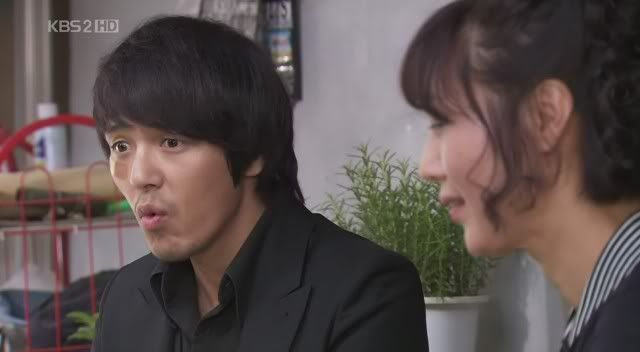
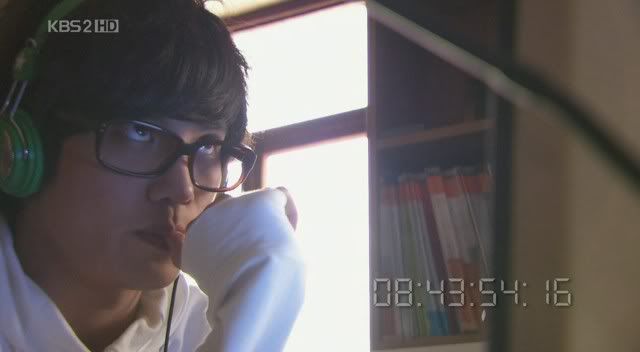
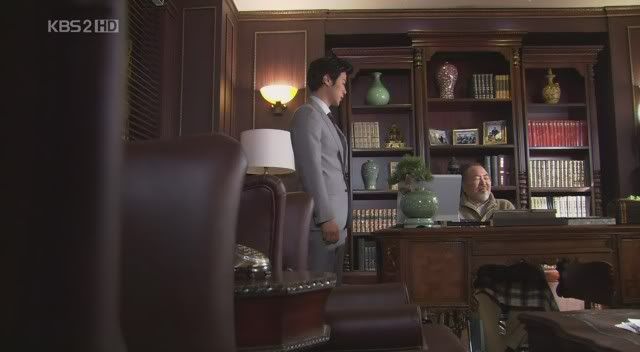
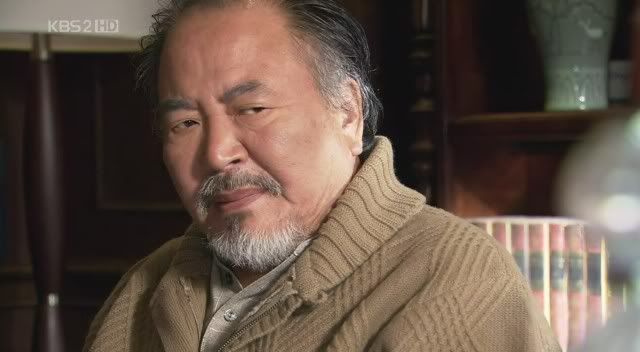
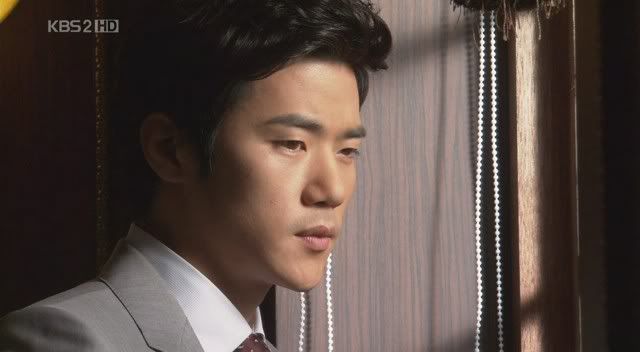
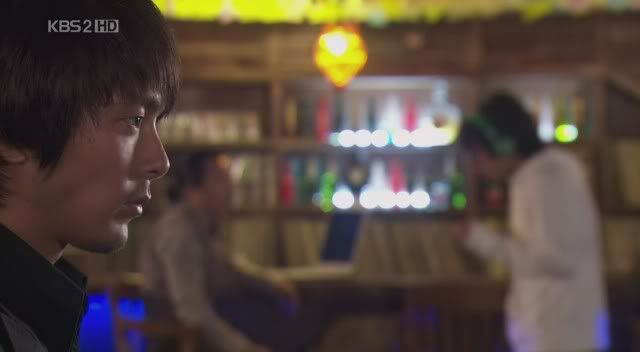
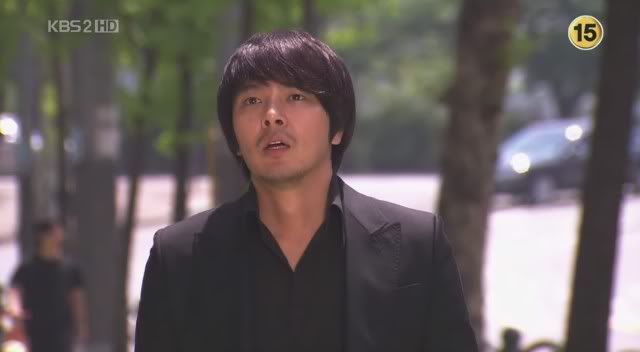
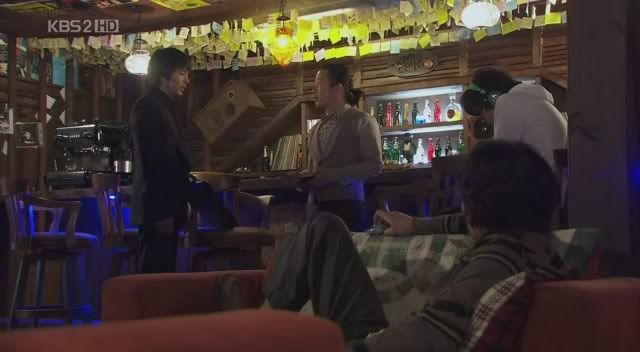
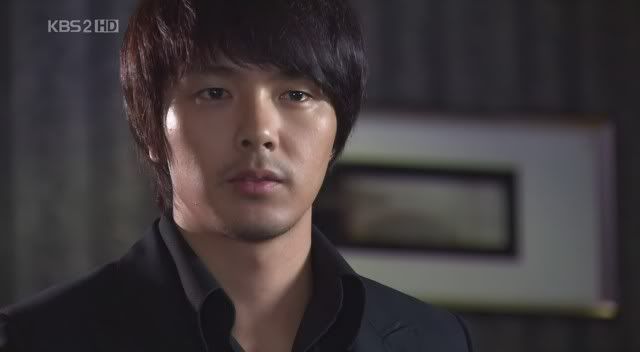
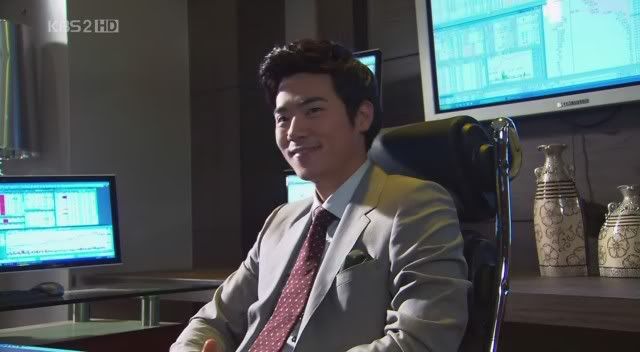
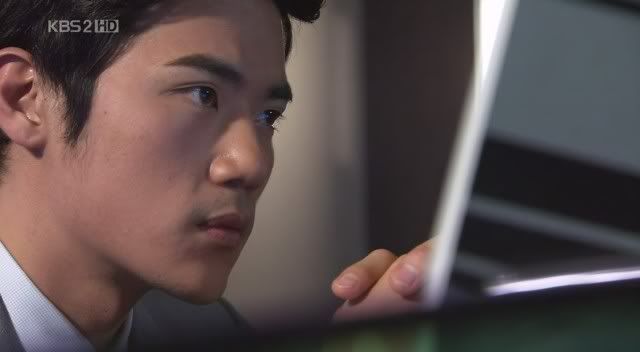

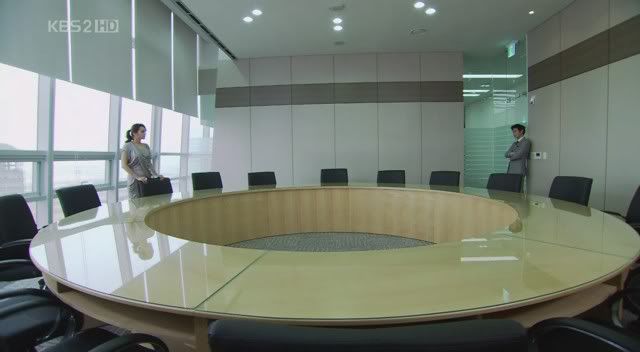
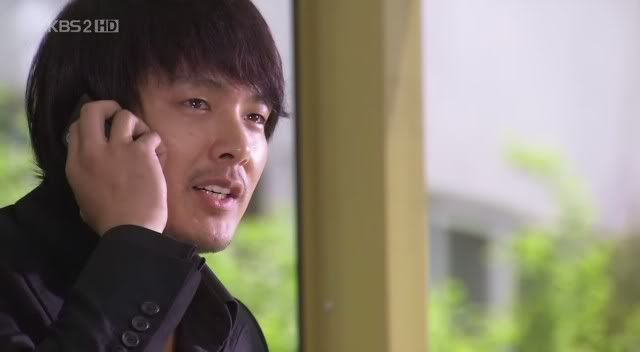
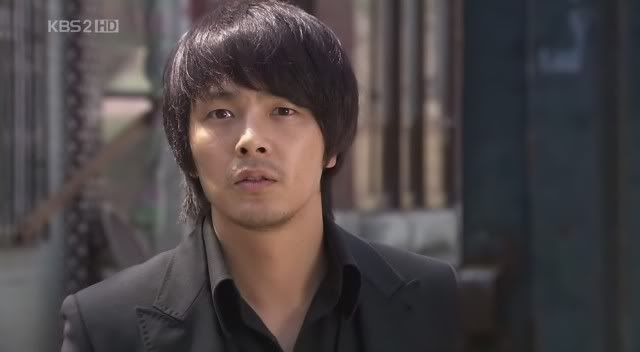
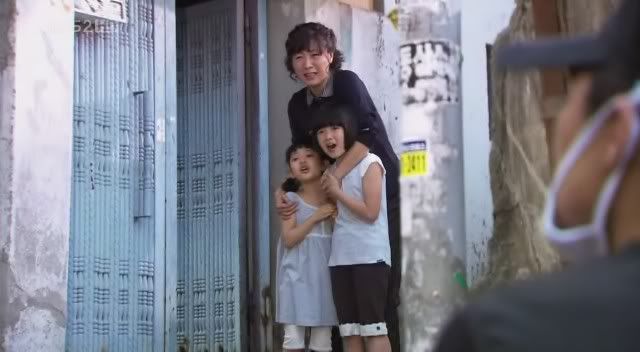


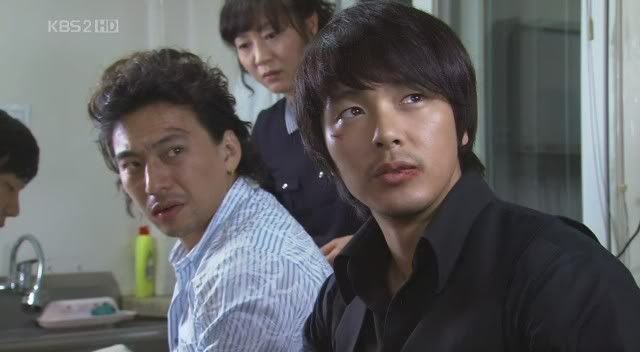
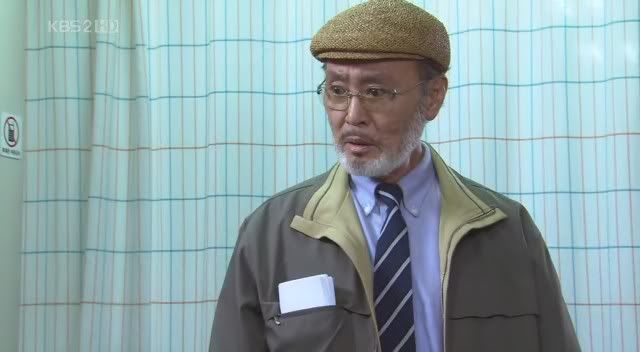
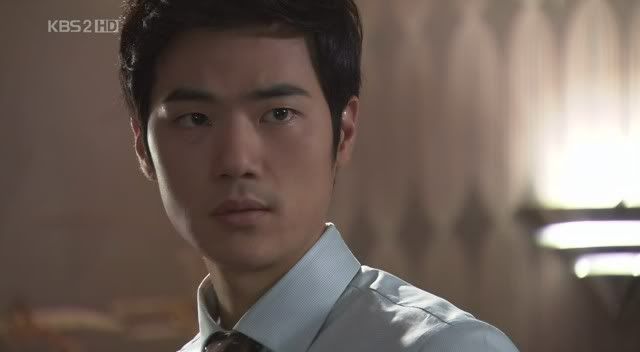
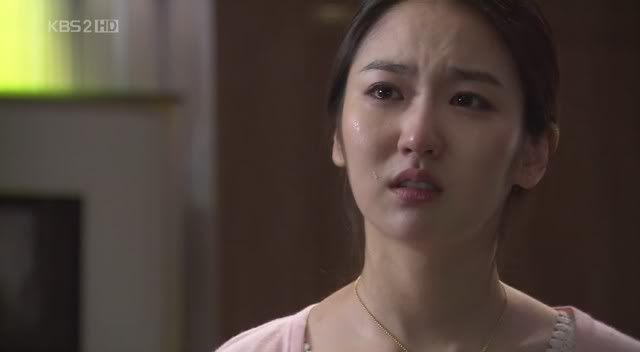
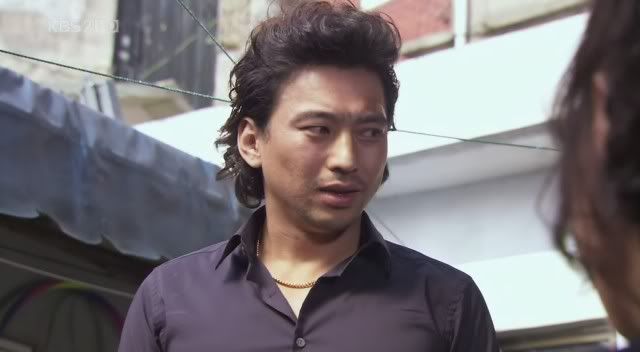
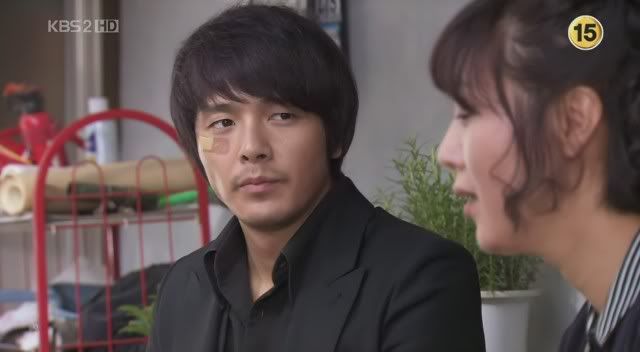
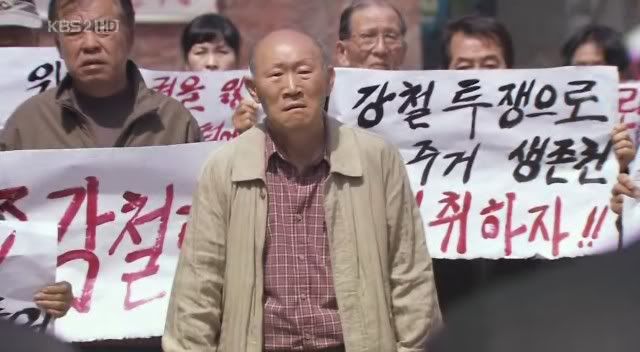



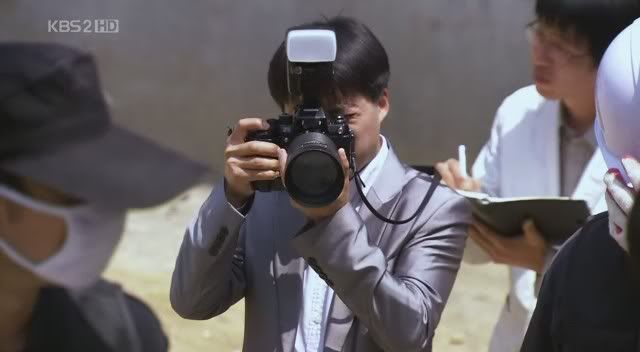
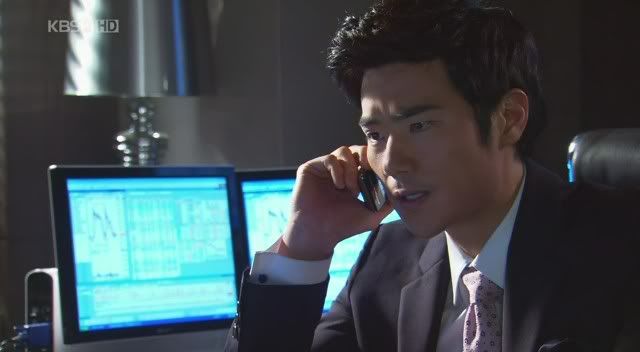
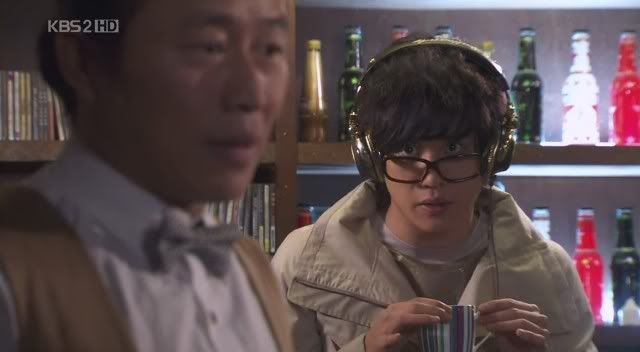
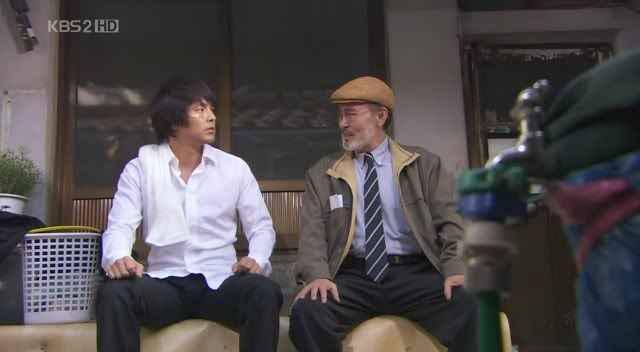
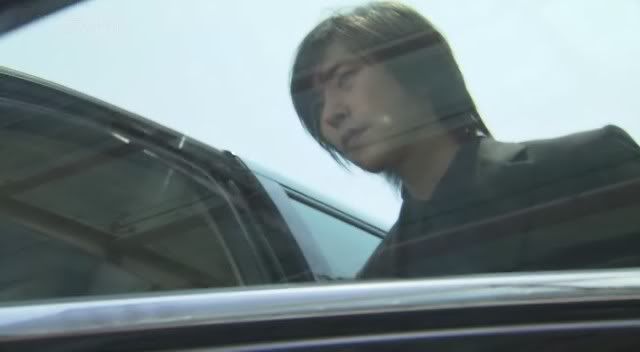

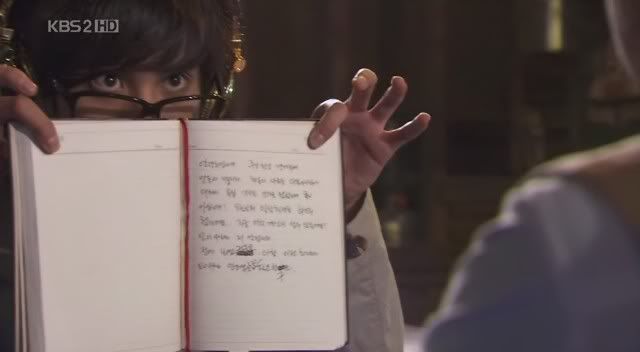
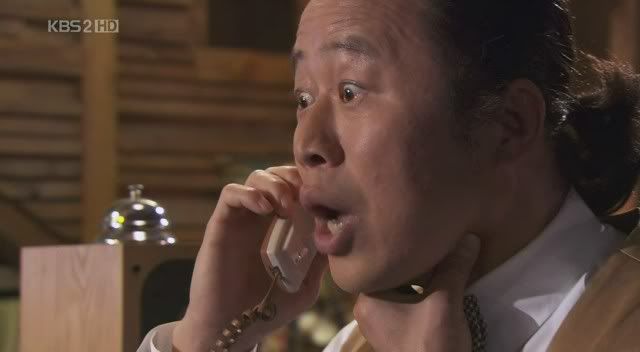
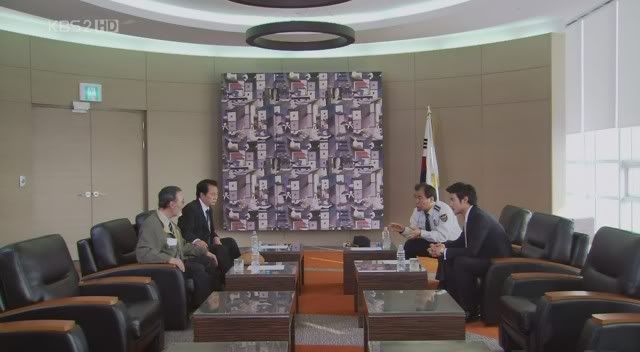

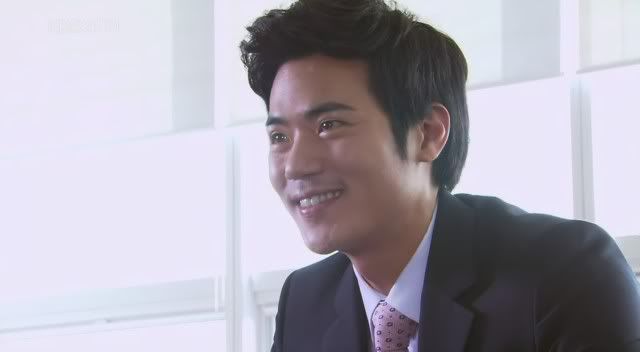


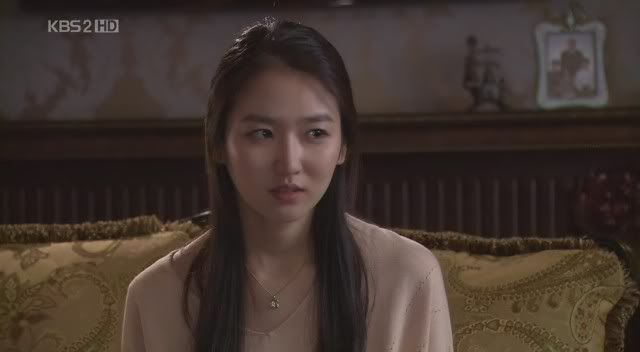
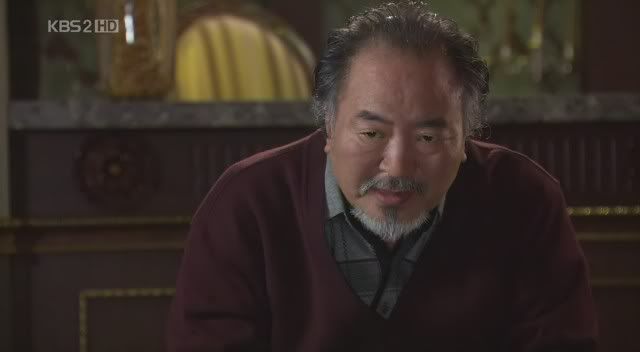
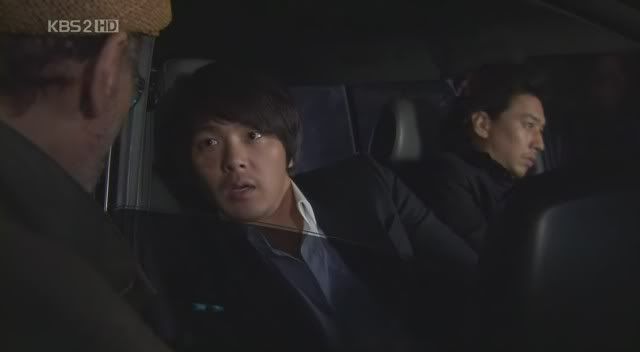
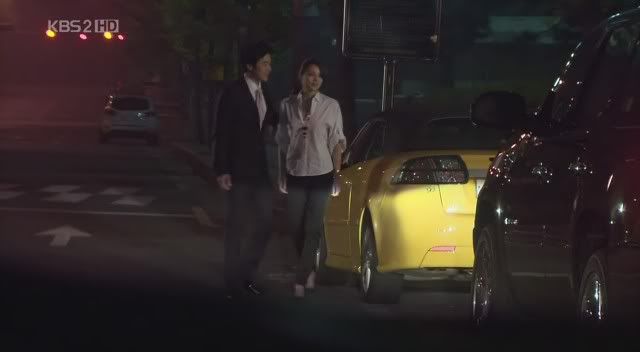
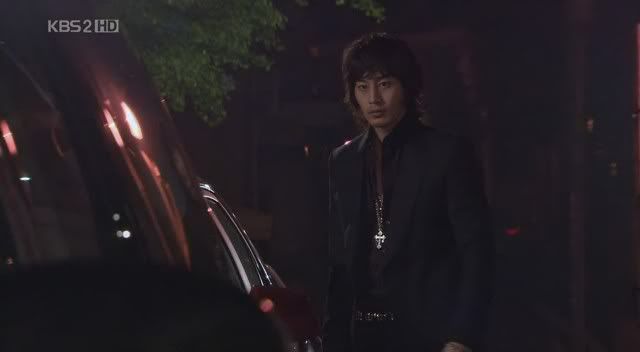

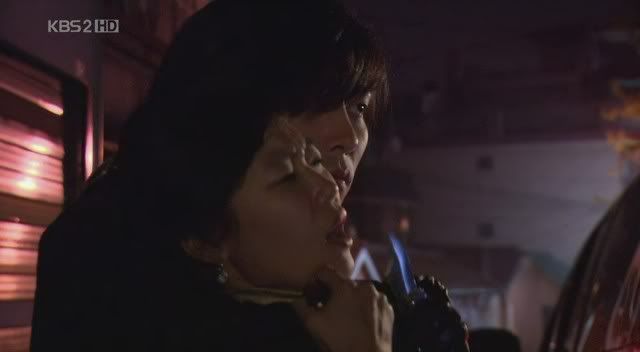
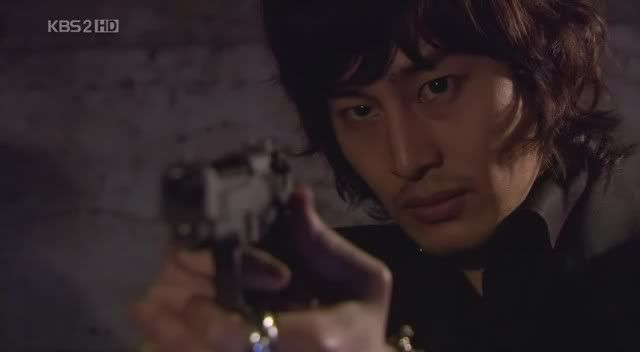
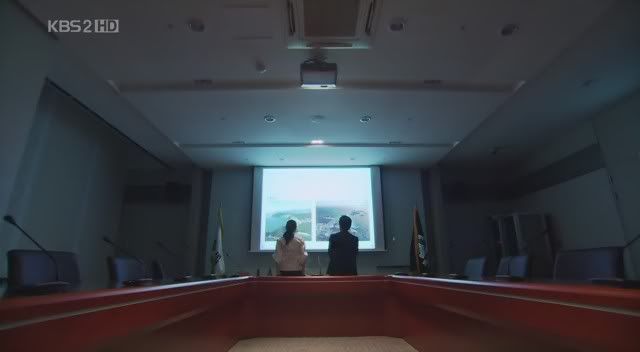
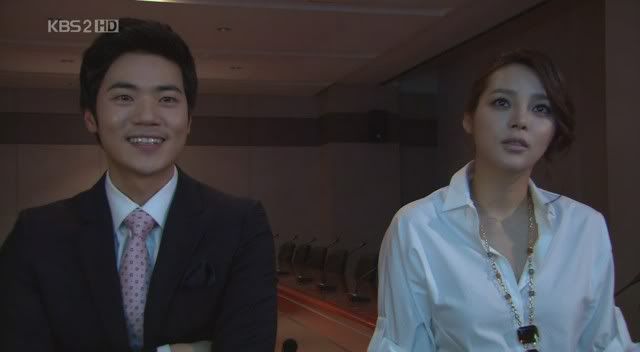
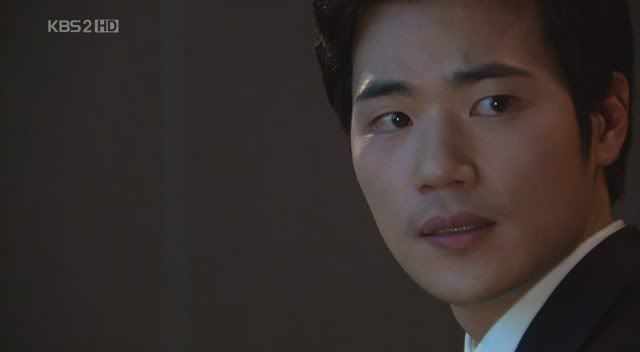
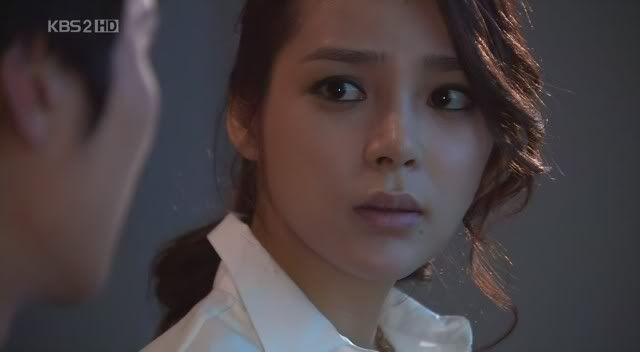
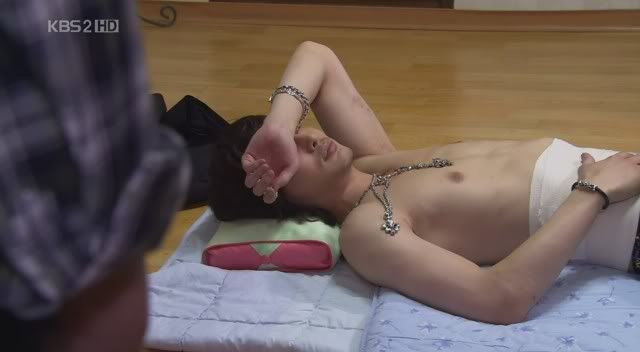
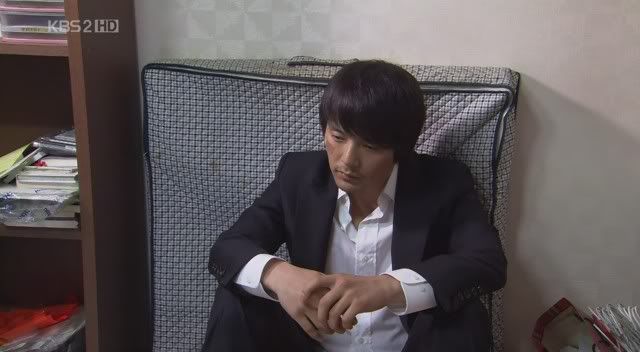
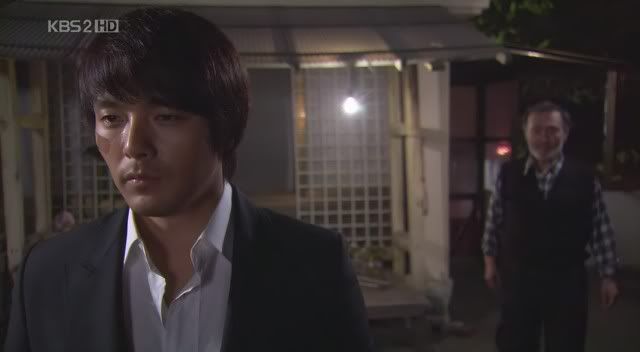
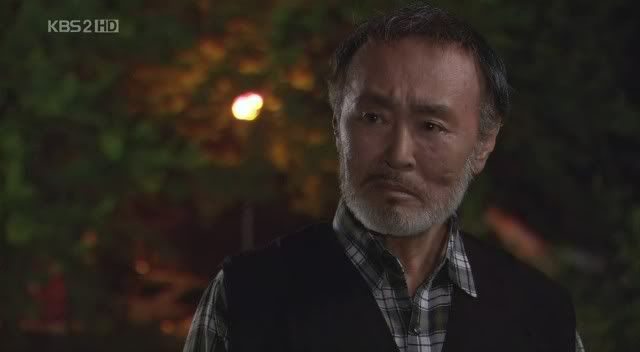
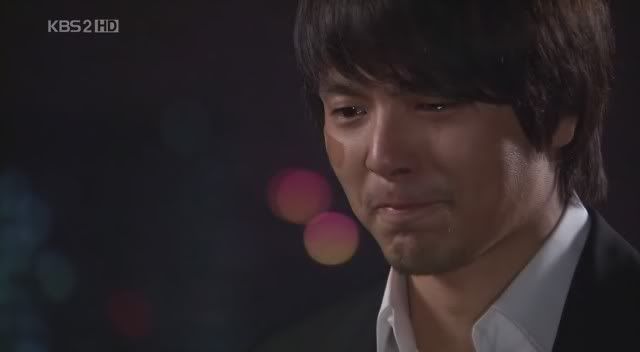
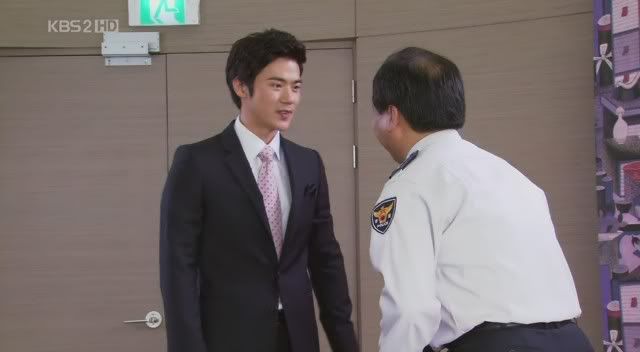
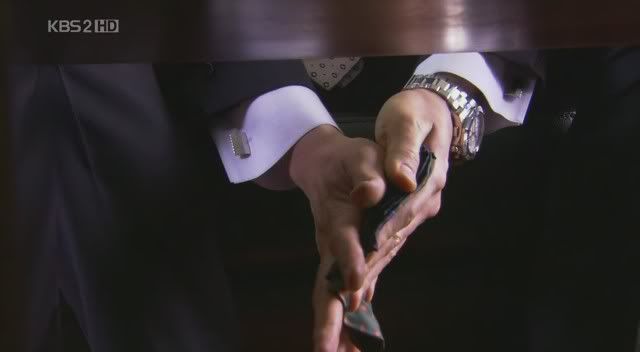
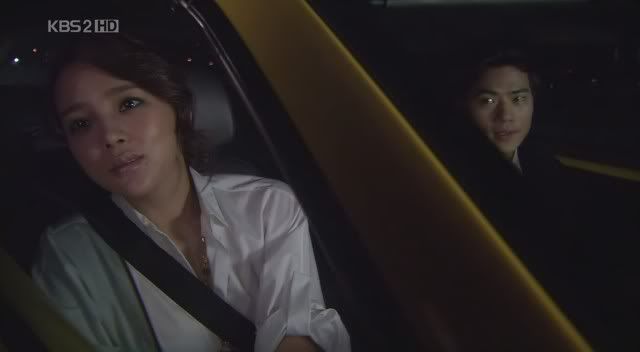

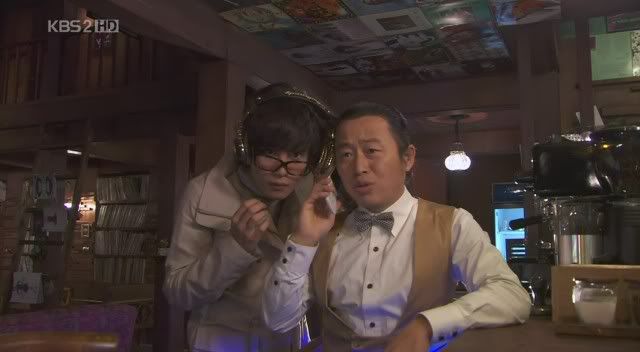

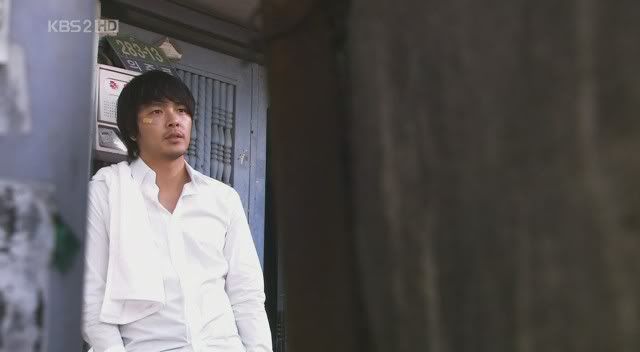
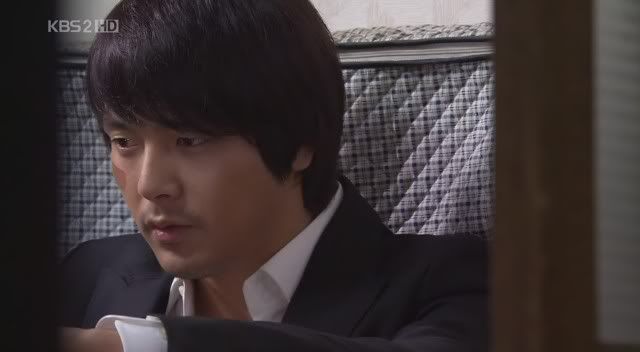
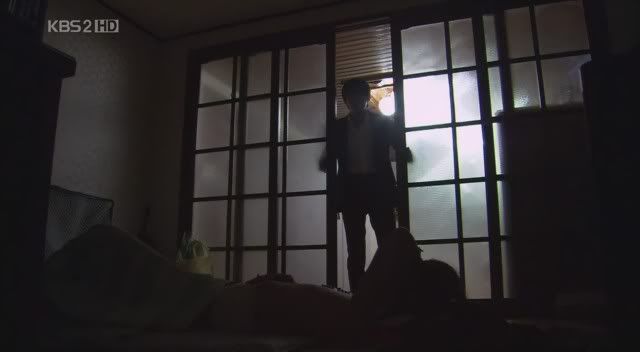
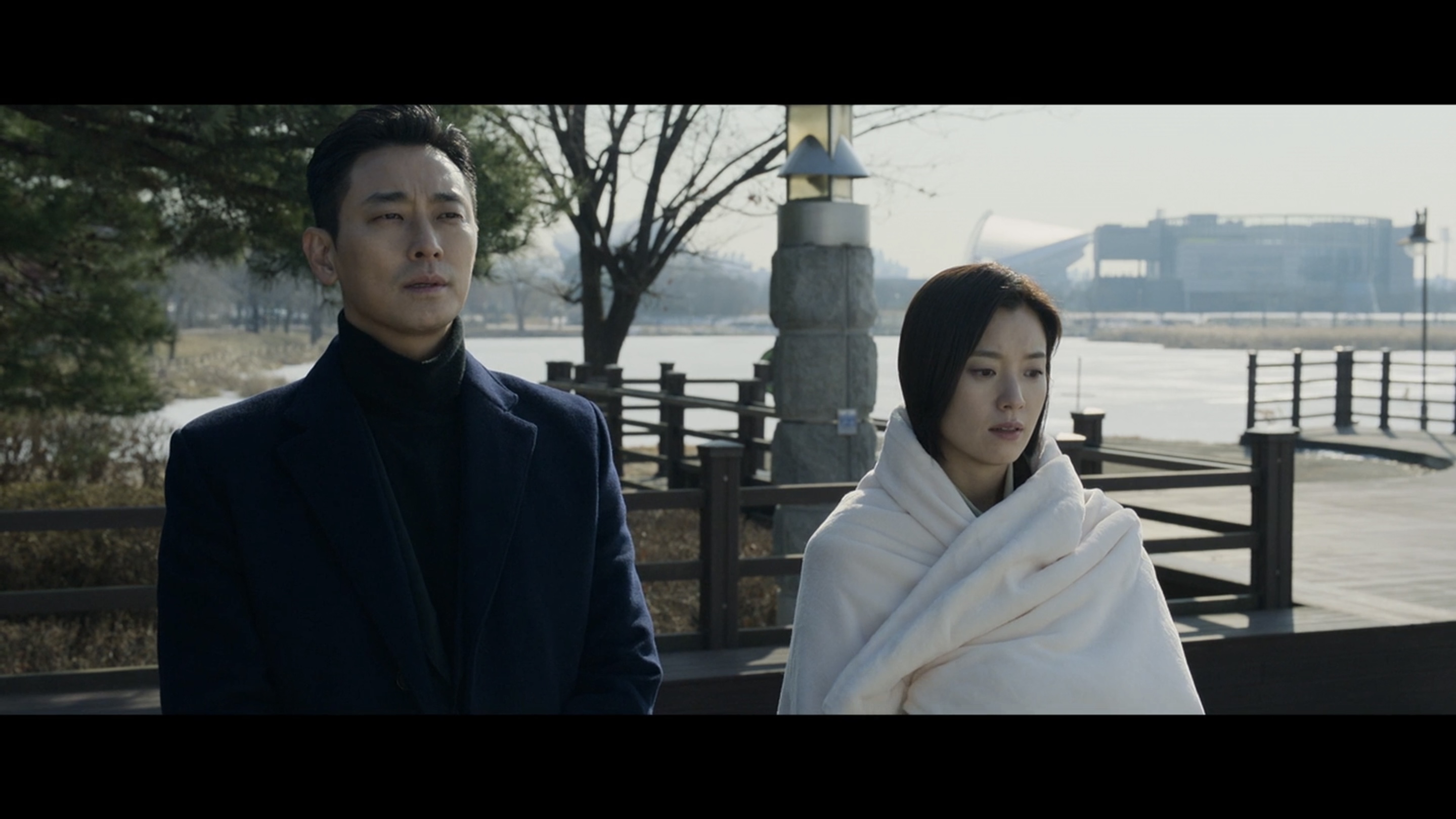
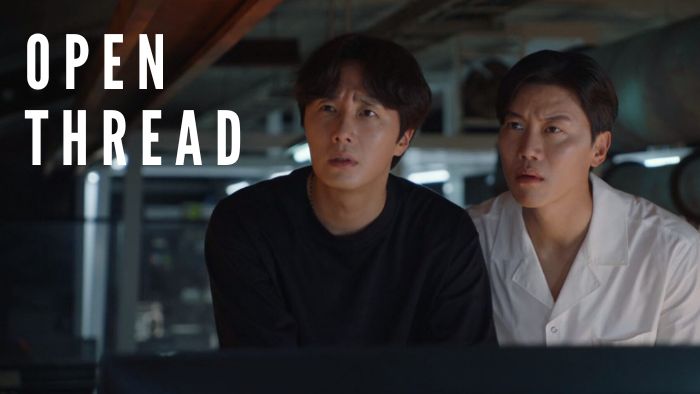
![[Cast Away] A psychometric marries his enemy to foil her plans](https://d263ao8qih4miy.cloudfront.net/wp-content/uploads/2023/09/castaway_header1.png)
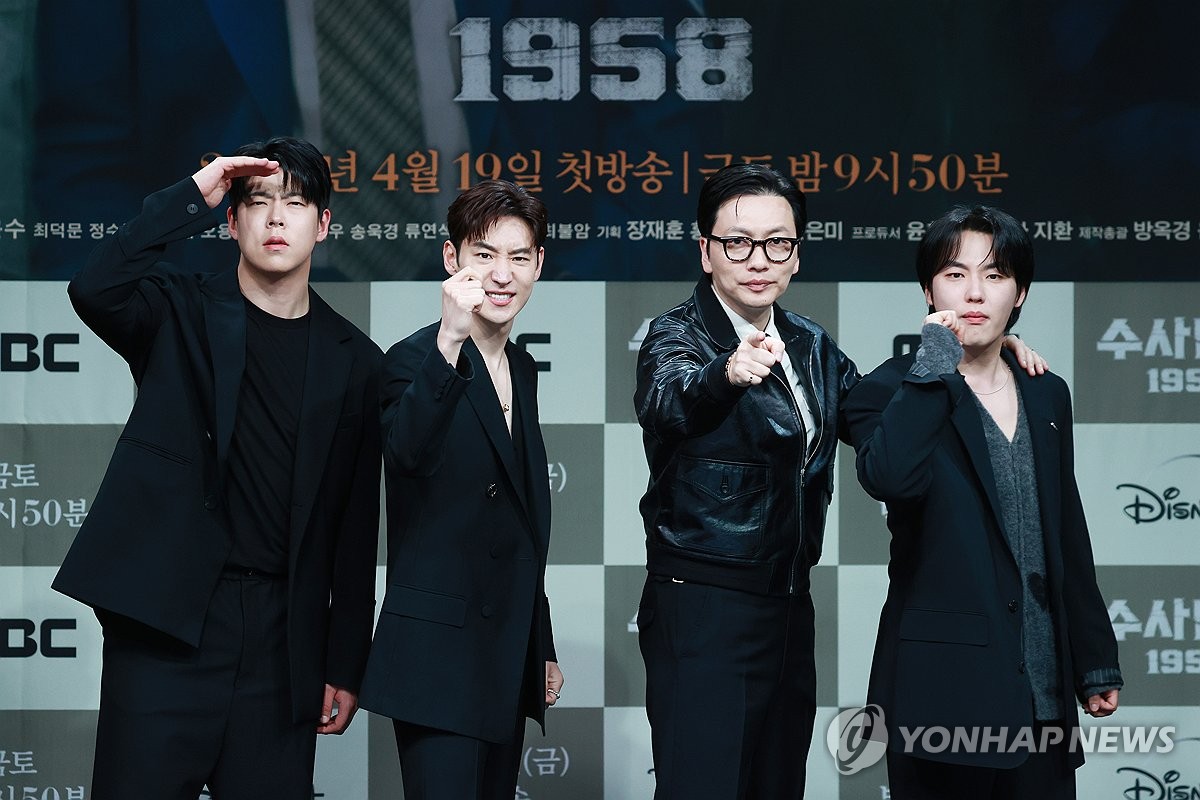
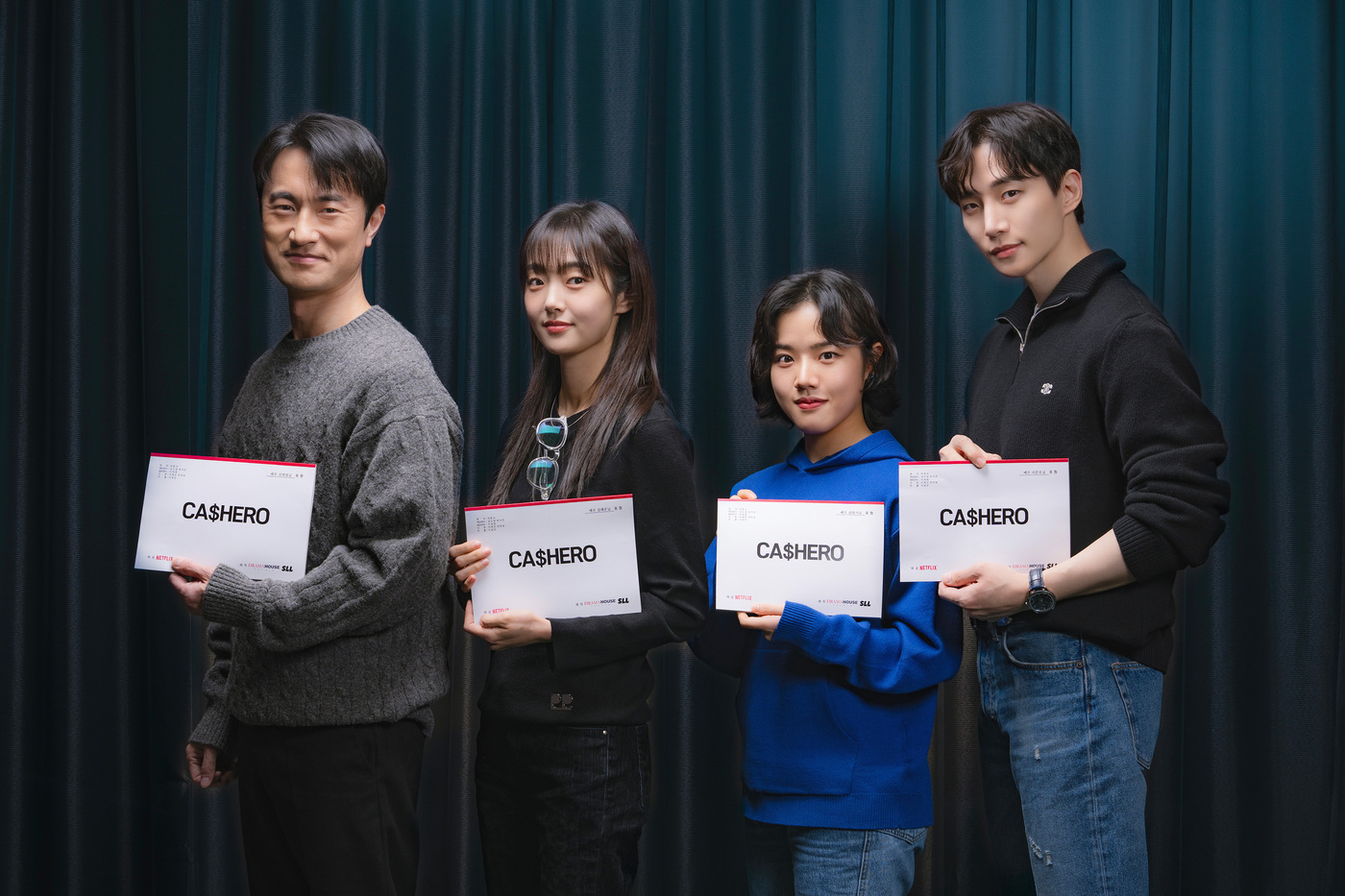
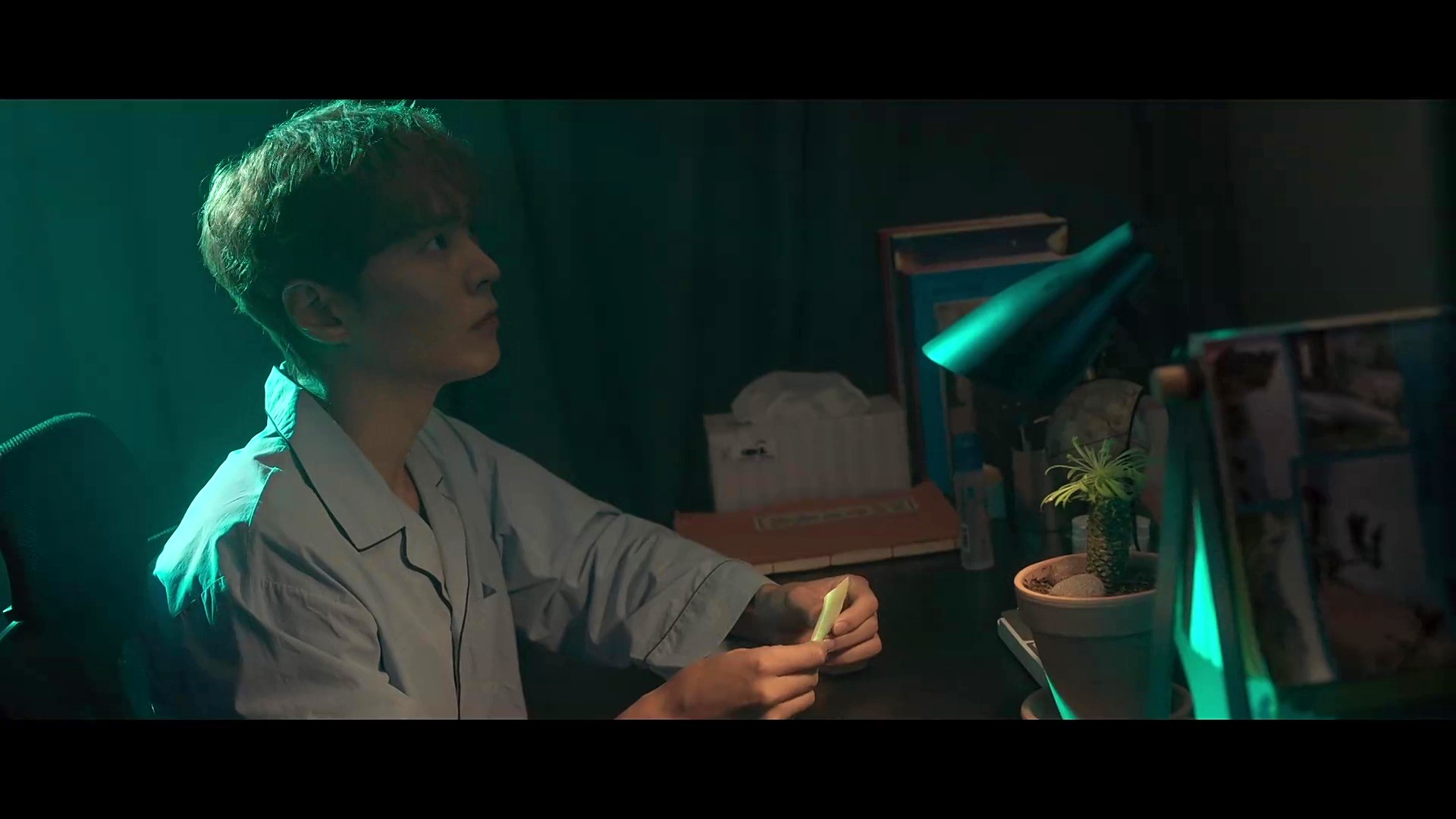
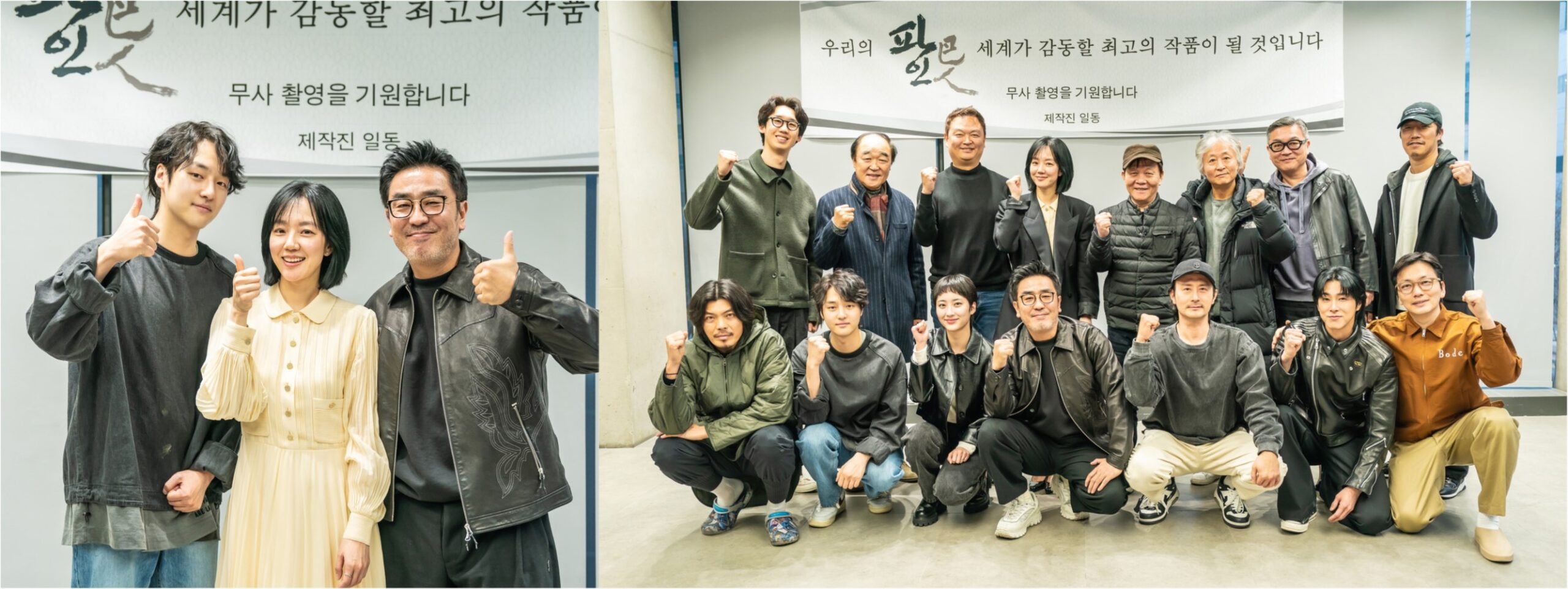
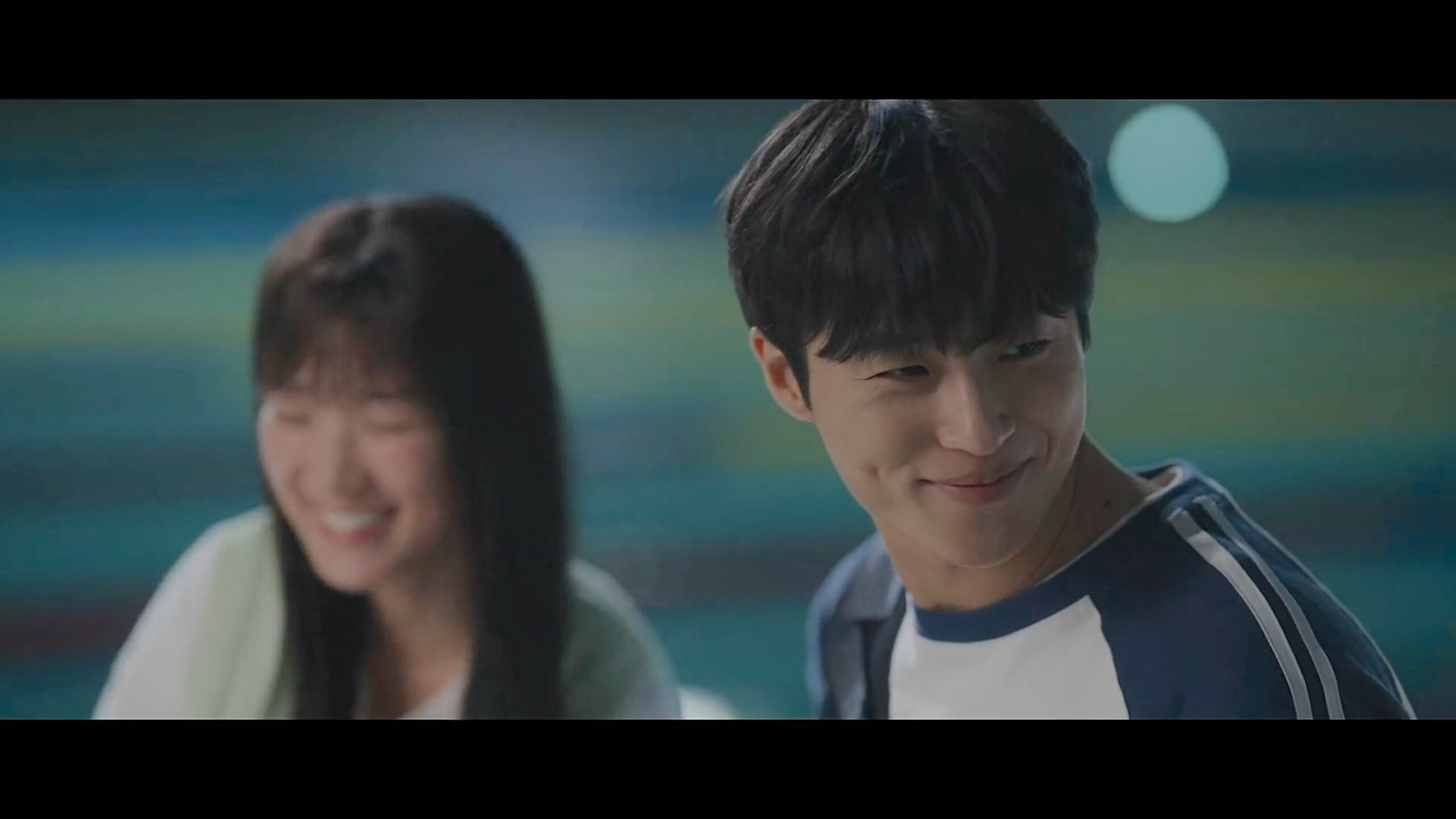
![[Beanie Recs] Dramas about fangirling](https://d263ao8qih4miy.cloudfront.net/wp-content/uploads/2022/05/BeanieRecs.jpg)
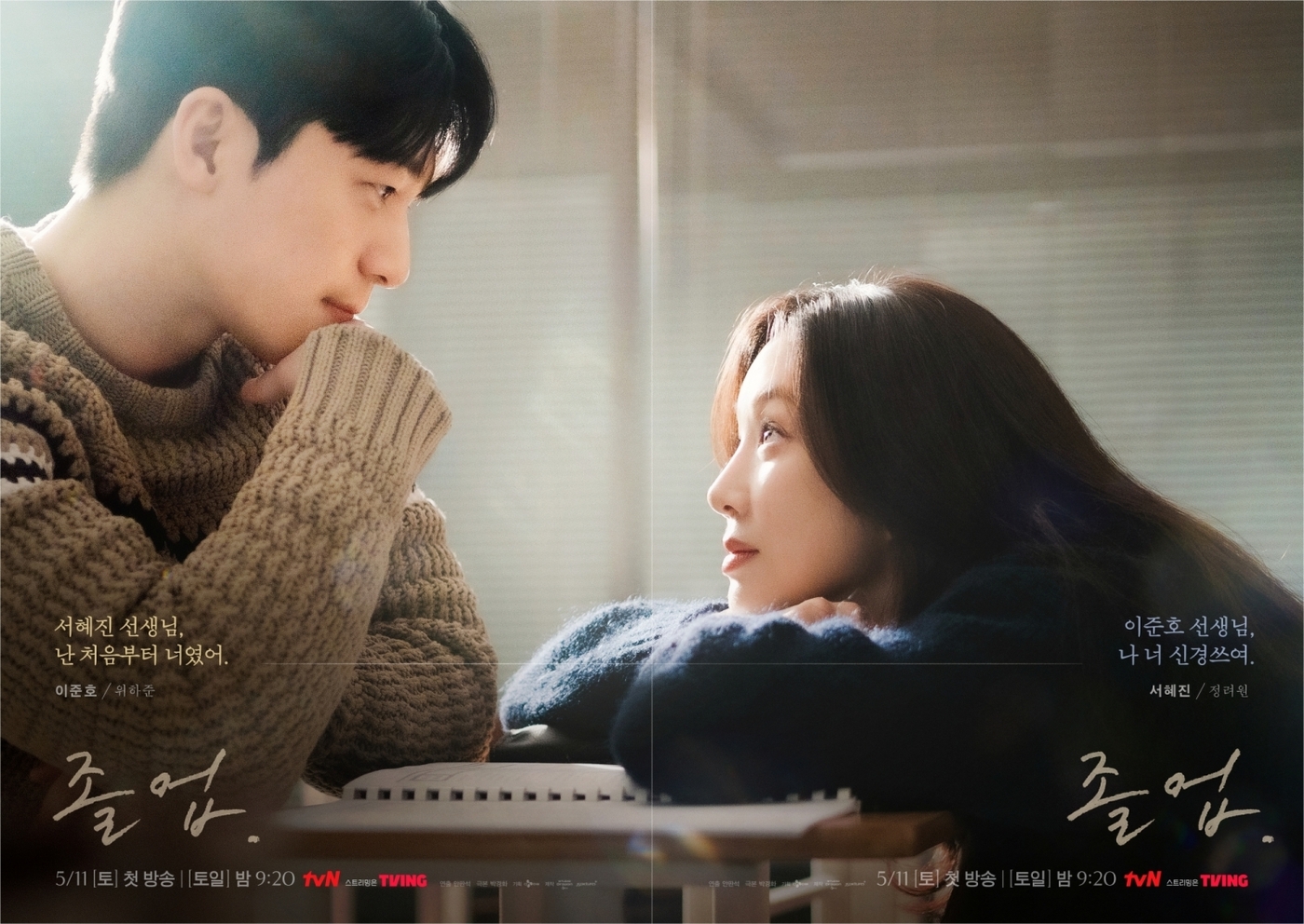
Required fields are marked *
Your email address will not be published. Required fields are marked *
51 bitz
June 1, 2009 at 1:01 PM
I enjoy your enthusiasm and perspective. In a certain light, your opinions are more entertaining than the drama itself.
succinctly, DW does not sweat of enthusiasm.
DW is a psychopath. emotionless.. only ES makes him tick. DW is slightly obessive impulsive, cleaninesss is his obession. Monaco isn't even a dream, he just picked one because his sister asked.
ever since ES left DW is breaking down, exposing is insanity. it's nice to watch.
Required fields are marked *
52 elaineD
June 13, 2009 at 10:25 PM
you know, i do not think that do woo seems "diabolical" when he reveals his emotions. Instead, i think that reveals his weakness. When he lets emotion take over him like that, he stops thinking clearly ---> ex: "calling kyung ah "eun soo." he seems too excited, thus possibly leading to his possible downfall.
throughout the show (and it also applies to our daily lives), having emotions take over one's logic is definitely seen as a weakness.
Required fields are marked *
53 dunlop
June 17, 2009 at 7:13 PM
DW gets more and more OCD, lol.
I also think he was wiping his hands. We saw from episode 1 how OCD he can be. I think it was the first DW scene, where he's talking to Oh. He takes a hair off Oh's jacket, and fixes his tie for him.
And btw DW is such a unique villain. In most dramas the villain usually became the villain because of their situation, and they usually have good in them that they may have lost. But with this guy, it's so scary because he might be crazy! He's very disturbed. But then again, you feel a different kind of sympathy for him because it seems like he was born like that. And he knows this, and of course he would feel wronged. He didn't even get to experience being good, because he never had it to begin with. But who knows, maybe we will see it later.
Required fields are marked *
54 Larkspur
October 4, 2009 at 6:36 PM
Hi Javabeans. This is one of my favorite sites. Thanks for the recap. I'd like to comment on Do-woo's wiping of hands here. I thought it's more of telling us that he really is an obsessive-compulsive: wiping his hands after shaking another's hand (pretty much like when he visited Kim Shin in prison, when he used his hanky in getting the phone), but it could also mean what you've just said, that he's nervous and is wiping his sweaty hands. I'm just watching the series now (because you rated it highly, yes, that's how I believe in you) and I would like to thank you for such very interesting insights in your recaps. I have also read your recaps on other kdramas and I think they're witty and funny. Keep it up!
Required fields are marked *
55 Vic
May 1, 2010 at 2:37 AM
this show is getting boring as hell. it's not a good one, unfortunately...
it was amazing till ep 5 ,but then uff....
so draggy, nothing happens, etc
Required fields are marked *
56 Gasenadi
December 7, 2012 at 1:00 AM
Bawled. Like. A. BABYYYYY!!! Just heartbreaking those first scenes, the flashbacks of his brother, all those memories about money, Shin's "place" in the world. AND infuriating!
Had to pause, sob, and collect myself. *sigh*
Required fields are marked *